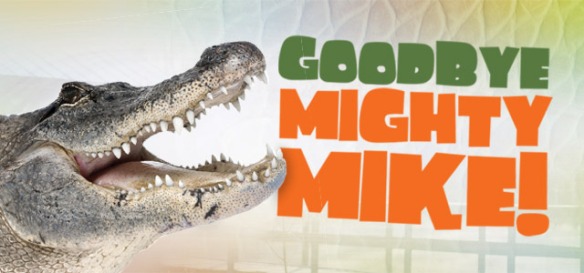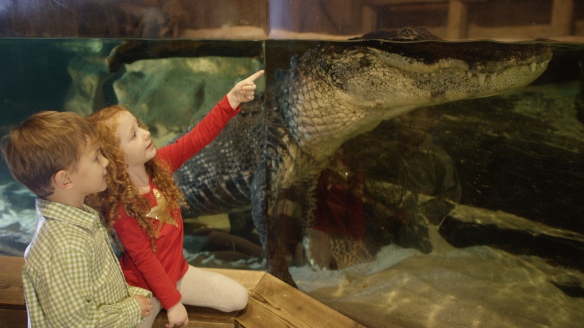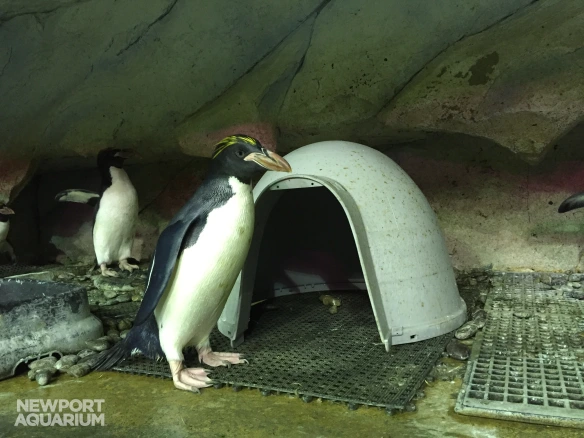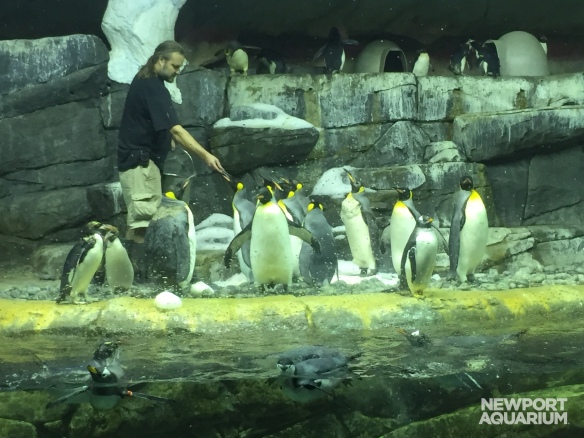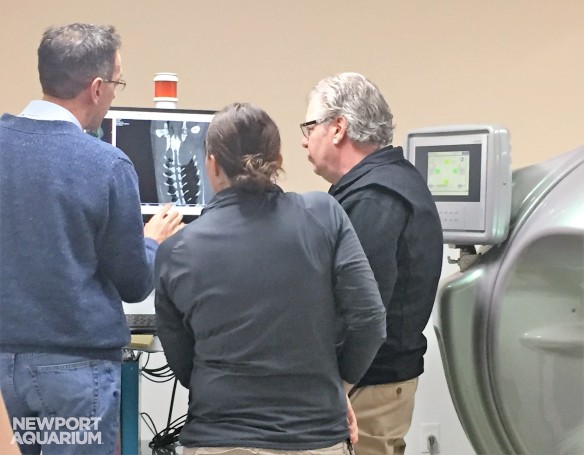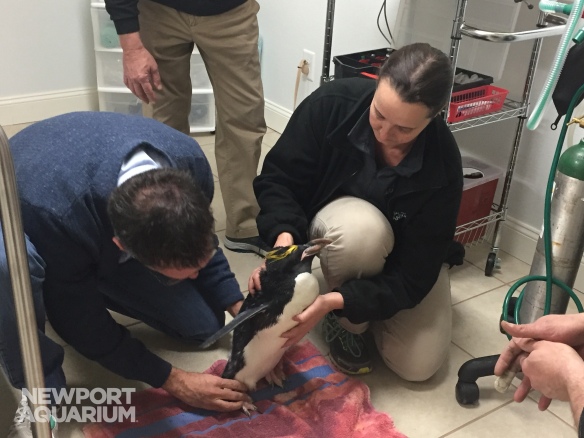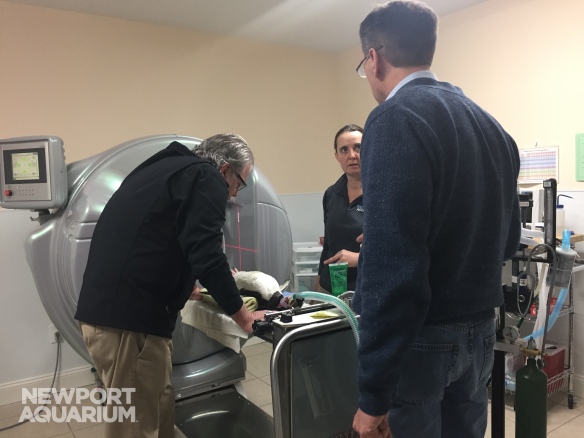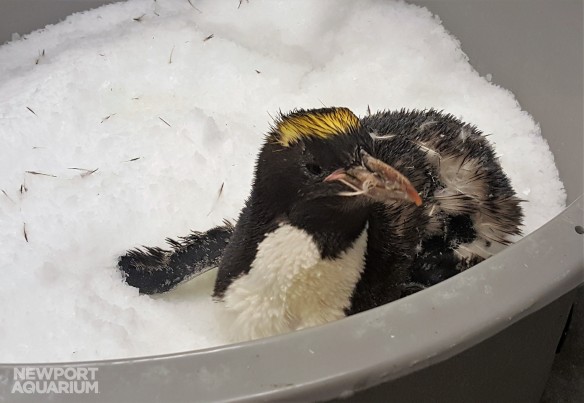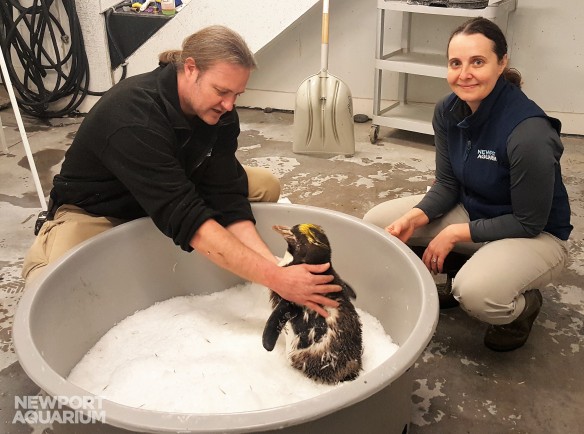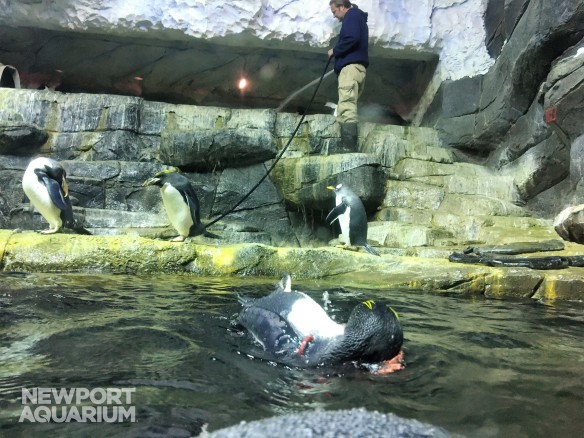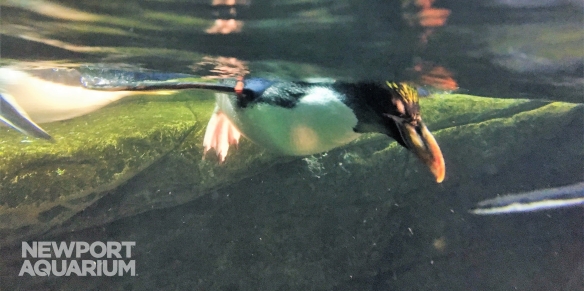This week is National Zoo Keeper Week. Our Biologists may not have the official title of “Zookeeper,” but they do give exemplary care to the animals that live here at Newport Aquarium. Here’s a brief glimpse into what they do behind the scenes!
Newport Aquarium has thirteen biologists that care for all of the fish, reptiles, amphibians, and penguins that have their home here. Care for these animals is more than just simply feeding and giving the animals some attention. They also have a lot of food preparation, cleaning, and maintenance work to do!

All of our seafood and produce is restaurant-quality and prepared with great care by our team.
Food preparation for the animals is a major part of the day. The animals at Newport Aquarium have very specific diets, and it is the job of our biologists to make sure they get the exact food they need. A lot of research is done to ensure that we are getting the right food items and nutrients to each animal. If you step into our animal kitchen in the morning, you may see a variety of fish, shrimp, salads, and bugs. If the Sharkrays are eating, you may even see whole Lobster! All of our seafood and produce is restaurant-quality and prepared with great care by our team.

Senior Biologist Jen, feeding Denver, our adult loggerhead sea turtle at his station. Denver is about 24 years old and weighs about 205 pounds! His favorite foods include fish, squid and salmon which he eats regularly, about 3-5 days a week.
Training is an important part of the care of many of our animals here at Newport Aquarium. Animals like the white alligators and our sharkrays are Target Trained. This means that they know to come to a target pole to get their food. Denver the loggerhead sea turtle and some of our stingrays are Station Trained. This means that the animals know to come to a specific location when asked to. This helps the biologists safely work with these animals and ensures that every one of them gets the food and care they need.

Biologist Kelly target training our Caiman Lizard.
Life at the aquarium could get boring if it wasn’t for our biologists and the enrichment they give to the animals. Enrichment can be anything from a new object in the enclosure, changing around their furniture, a new scent, sounds of their wild cousins, or a new food item. Our biologists use enrichment all of the time to stimulate each animal’s mind, keep them active, and help our animals engage in natural behaviors.

Introducing new objects encourages animals to explore, and it enriches their lives.
Animals can be messy, so our biologists have to always be ready to clean! This can be anything from cleaning the algae on the glass, to doing water changes, to scrubbing penguin “mess.” By the end of the day, they might be dirty, but the animals homes are clean and looking great!

Biologist Kristen scrubbing the glass of our paddlefish tank.

Biologist Rob cleaning our Coral propagation tank.
Health care is always on the mind of a good biologist. Daily observation of the animals helps to spot a problem before it starts. And if the need arises, our biologists work closely with our Vet Team to address any issue.

Our Vet Team evaluating some scans from Victoria the penguin.
What day is complete without a little bit of paperwork? This aspect of our biologists’ day isn’t well known to many people. Everything we do for the animals gets logged every day. This way, we have accurate records of what the animals ate, what kind of enrichment or training we did, or if there are any problems that we’re seeing. Paperwork is the biologists’ least favorite part, but it is critical to making sure our animals are well taken care of.

Biologists hard at work doing their afternoon paperwork.
Our biologists are animal conservation heroes. You may have noticed, some of our biologists share their passion with local TV stations.
Our biologists put in a hard day’s work, but they say it is worth it to know that the animals in their care are healthy and thriving. We are grateful for the work they do during this National Zookeeper Week and every other day of the year!

